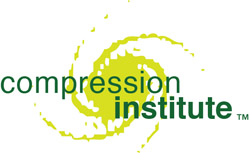 June 30, 2011
June 30, 2011
Some of the advisory group for the Compression Institute met last weekend. A mission statement has not been hammered out and wordsmith hardened, but it’s something like, “forming learning action groups to make Compression Thinking a common practice.”
The learning groups will focus on operational-sized working organizations. We won’t work big policy issues in political arenas no matter how important they may be.
That leads to structuring Compression Thinking so that it is coachable, and applicable to real organizations in today’s crazy-market economy. The ideal is a set of “principles” that can be adapted to re-thinking the status and strategy of work organizations to transition from “where we are to where we’d like to be” – without going broke, of course. The aim is a framework with some key points that can be measured against a ladder of progress (like the Baldrige criteria or many other auditing systems today). The framework structure still needs a lot of work, but it takes off from four “axioms” or premises of Compression Thinking:
- Globally, use and consume far fewer natural resources. In a work organization, just reducing the volume of resources processed reduces the size and scope of other problems no matter how wooly and conflicted they may be. (This is a hypothesis as that term is used scientifically. May not be true, but considerable evidence suggests that it is.)
- Globally create an improved quality of life for everyone. This is a desired condition. Quality of life in any situation is a subjective concept. At a minimum it means clothed, warmed, fed, and healthy. As we now think, this conflicts with point 1. The next two points are needed to help resolve the conflict.
- Create vigorous learning in active work organizations. We have to understand what we are doing in more breadth and depth to better anticipate future consequences. Ideals are useless without organizations capable of execution with them in mind.
- 4. Holistic thinking, or systems thinking. People start toward this from many viewpoints: Quality thinking; lean thinking; sustainability thinking; et al. But the complexity of human limits, conflicts, and motivations impede all such efforts. We have to find practical ways to overcome our own instincts.
Compression Thinking is so divergent from our expansionary standard that coaches, or mentors, need to be able to guide participants in learning groups. We have interest. We’ve begun to develop method. So stay tuned.
